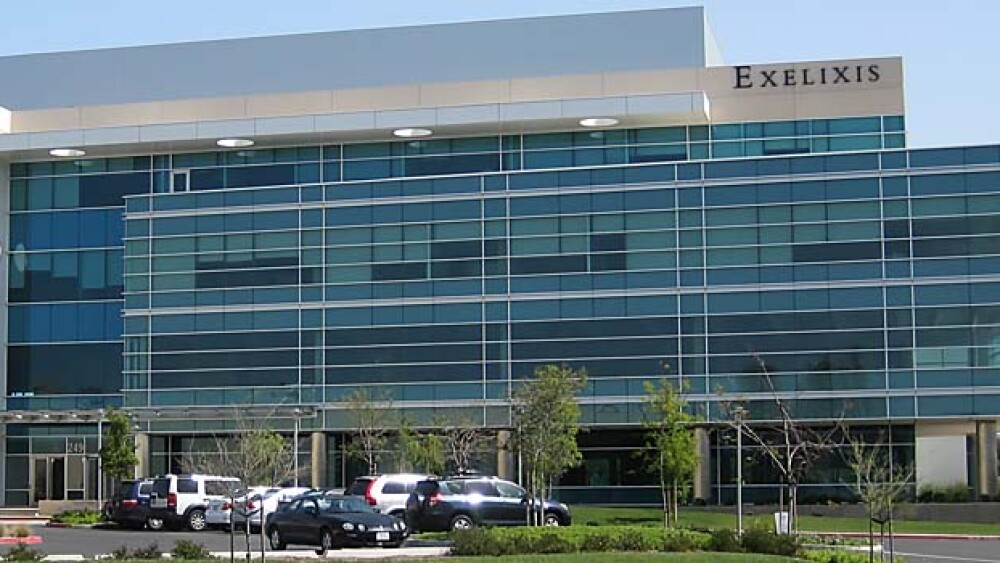Exelixis’ Cabometyx, in combination with two BMS-owned drugs, hit the primary endpoint of progression-free survival but missed the secondary endpoint of overall survival in renal cell carcinoma.
Shares of Exelixis, Inc. are falling in afternoon trading after the company released a mixed bag of interim data from a Phase III study in renal cell carcinoma (RCC).
Data from the ongoing COSMIC-313 study showed that Cabometyx (cabozantinib) combined with Bristol Myers Squibb’s Opdivo (nivolumab) and Yervoy (ipilimumab) hit the mark in progression-free survival compared to patients who only received a combination of the BMS drugs. However, Exelixis noted that the triple combination failed to hit the mark in overall survival (OS).
At the pre-determined time, the company said the combination did not demonstrate a significant benefit. Therefore, the trial will continue to the next analysis of OS.
Cabometyx is a small molecule inhibitor of the tyrosine kinases MET, AXL and VEGFR-1, -2, -3 and RET. It was first approved to treat patients with advanced renal cell carcinoma in 2017. Then, in 2019, the drug was approved to treat hepatocellular carcinoma, the most common form of liver cancer.
Last year, Cabometyx and Opdivo were approved as a combination therapy for the first-line treatment of RCC. Earlier this year, the companies posted positive two-year follow-up trial data that showed sustained survival and response rate benefits.
Vicki L. Goodman, chief medical officer and head of product development and medical affairs at Exelixis, said COSMIC-313 is the first trial to show that a tyrosine kinase inhibitor paired with dual checkpoint inhibitors can improve progression-free survival in patients with advanced forms of kidney cancer. Although the secondary overall survival endpoint of OS was not reached, Goodman said the company intends to discuss the results with the U.S. Food and Drug Administration in order to determine the next steps toward a potential regulatory submission. Study data will also be presented at future medical meetings, she noted.
Renal cell carcinoma is the most common type of kidney cancer in adults, accounting for more than 140,000 deaths worldwide each year. When detected in its early stages, the five-year survival rate for RCC is high. However, globally, the five-year survival rate for those diagnosed with metastatic or advanced kidney cancer is about 12.1%.
The COSMIC-313 study included 855 patients who were randomized 1:1 to receive either the triple combination of the checkpoint inhibitors and Cabometyx or the two BMS drugs alone. The primary analysis of progression-free survival showed a significant reduction in the risk of disease progression or death for the Cabometyx, Opdivo and Yervoy combination. The safety profile was reflective of the known profiles for each of the drugs, Exelixis stated.
Dr. Toni Choueiri, M.D., director of the Lank Center for Genitourinary Oncology at Dana-Farber Cancer Institute and the Jerome and Nancy Kohlberg Professor of Medicine at Harvard Medical School, said the treatment landscape for RCC has continued to evolve. However, there is “still a need for additional effective first-line treatment options for patients with intermediate- or poor-risk disease.”
The initial findings from COSMIC-313 suggest that the triple combination of drugs may have the potential to serve as an additional option for this patient population, Choueiri added.





